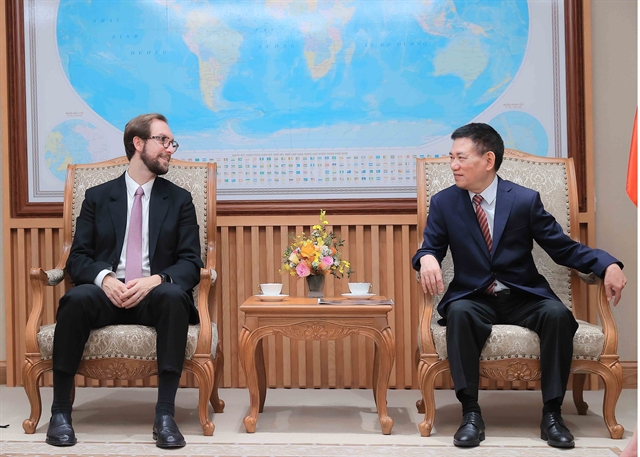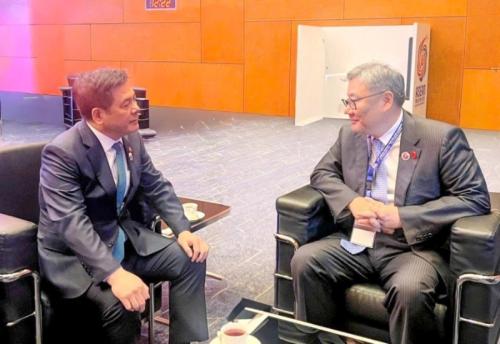Việt Nam looks to global best practices to develop crypto-asset market
Việt Nam hopes to learn from technological and regulatory frameworks in other countries to operate a safe and transparent crypto-asset market.
HÀ NỘI — Việt Nam is keen to draw on international experience in developing its crypto-asset market, aiming to create a professional platform for investors, attract financial resources, and foster national economic growth, Deputy Prime Minister Hồ Đức Phớc has said.
Speaking at a meeting on Thursday with Marco Dal Lago, Vice President for Global Expansion and Strategic Partnerships at Tether Group, Phớc noted that the Government has recently adopted Resolution No. 05/2025/NQ-CP on the five-year pilot of crypto asset trading. Competent authorities are currently reviewing applications and are expected to license around five strong crypto-asset trading platforms. Following the pilot phase, once stability is ensured, a comprehensive legal framework will be introduced to regulate the market.
The Deputy PM highlighted Việt Nam's robust economic performance, with an anticipated growth rate of about 8 per cent this year and total import-export turnover of US$911 billion. To maintain this momentum, he said, Việt Nam needs significant resources for major infrastructure projects, such as expressways, high-speed railways, airports, seaports, and an international financial centre. Against that backdrop, Việt Nam hopes to learn from technological and regulatory frameworks in other countries to operate a safe and transparent crypto-asset market.
Phớc also encouraged Tether Group to explore cooperation with a leading Vietnamese enterprise to develop a crypto-asset exchange.
Dal Lago described Việt Nam as one of Tether’s most promising and strategic markets, citing its young population, dynamic economy, and substantial remittance inflows. With modern technology, competitive costs, and extensive experience, Tether is confident in its ability to collaborate effectively with Vietnamese partners to build and manage crypto-asset trading platforms, he said.
He affirmed Tether’s commitment to supporting Việt Nam in establishing a sustainable crypto-asset market. The group also expressed readiness to assist in developing a clear and transparent regulatory framework to help repatriate offshore financial flows and spur economic growth.
During their discussions, both sides exchanged views on system security and safety, policy formulation for crypto-asset trading, potential cooperation models, and best practices for managing capital flows through digital asset exchanges.
Tether Group is a leading global issuer of stablecoins, with total reserve assets exceeding $177 billion, including about $120 billion in US Treasury bonds.
Source: VNA/VNS
Photo: VNA/VNS Photo





